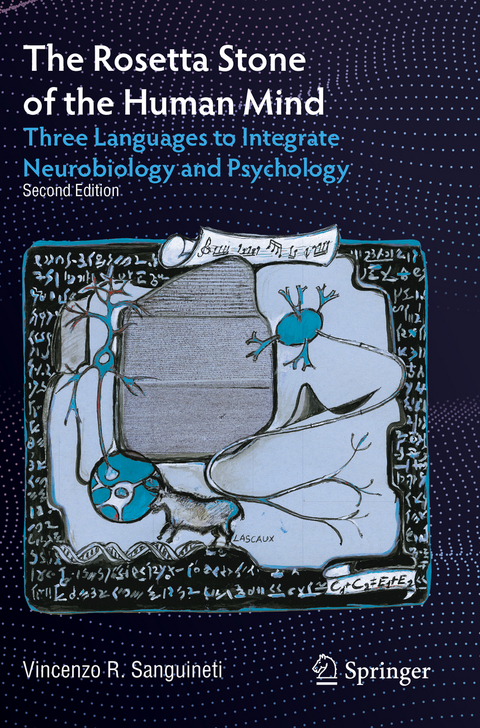
The Rosetta Stone of the Human Mind
Springer International Publishing (Verlag)
978-3-030-86414-9 (ISBN)
Vincenzo Sanguineti was born in Eritrea and lived there until completion of Medical School at the "Universita' Degli Studi" in Milan, Italy, where he also held a position as Instructor at the Department of Physiology. In Eritrea he carried out anthropological studies for the Institute of Psychology of Milan University. He then spent five years in Nigeria, where he conducted published field research in Tropical Medicine, participated to the medical services for the building of a hydroelectric dam on the Niger River, and directed a missionary hospital. Consequently, he profited from the prolonged exposure to uncontaminated natural habitats and to the degrees of difference and similarity among different species, and different human cultures. He moved to the United States in 1970, completed his training in Psychiatry at Yale and was member of its faculty until 1989, when he relocated to Philadelphia and joined Jefferson Medical College. He had always experienced a deep interest and fascination for the interaction between the unique subjectivity of the self and the interactive processes stemming from the profound complexity of the individual and collective variables participating to the phase-space of the mind. These variables represent a combination of the specific sociocultural characteristics and rules of each epoch (what Jung defined as the spirit of the time) and of the eternal unchanging domain of the archetypes, those cognitive and affective configurations that represent the world of the organizing templates and are untouched by the passage of time. Jung called this domain the spirit of the depth. The Jungian concepts added to the author's prolonged experience of different cultures and enriched his deep interest in history, particularly at sociocultural intersections, as was the case with the Trojan saga.
Such interests evolved into more programmatic research and generated various studies and presentations at national and international conventions, as well as forming the basis of his books: "Landscapes in my Mind", "The Rosetta Stone of the Human Mind" and the present analysis of Homer, as well as chapters in several scholarly works; and of his fictional historical biography of Sarpedon, the mythical king of Lykia and great hero at Troy.Presently, Dr. Sanguineti is in private practice and an associate professor of Psychiatry at Jefferson Medical College.
Learning the Languages.- Humanity's Search for Mind and the Subject: A Brief Review of the Evolution of Neuropsychobiology.- An "Ideographic," Suprapersonal Language of Rules and Universal Symbols: Alwyn Scott and Nonlinear Dynamics.- A "Demotic," First-Person Language of the Individual and the Social System: Apuleius and the Myth of Psyche.- The Language of the Objective Observer: Gerald Edelman and Neurodarwinism: Antonio Damasio and the Feeling of Knowing.- Seeking the Understanding.- Consciousness.- The Unconscious.- The Database.- Affectivity.- The Neural/Mental Gap: Intuition, Self and Ego, a Trilingual Map.- Applying the Knowledge.- The Three Languages and Science: A New Scientific Paradigm?.- The Three Languages and Treatment.- The Psychotherapeutic Dialogue: Intersubjectivity.- The Role of a New Science for Psyche Upon Society and Culture.
| Erscheinungsdatum | 01.04.2022 |
|---|---|
| Zusatzinfo | XXII, 167 p. 25 illus., 6 illus. in color. |
| Verlagsort | Cham |
| Sprache | englisch |
| Maße | 155 x 235 mm |
| Gewicht | 445 g |
| Themenwelt | Medizin / Pharmazie ► Studium |
| Naturwissenschaften ► Biologie ► Humanbiologie | |
| Schlagworte | Consciousness • Evolution • Feeling • Intervention • Intuition • Neurobiology • neuropsychological events • Neuroscience • perception • Philosophy of mind • Psychiatry • Psychodynamics • The Unconscious |
| ISBN-10 | 3-030-86414-6 / 3030864146 |
| ISBN-13 | 978-3-030-86414-9 / 9783030864149 |
| Zustand | Neuware |
| Informationen gemäß Produktsicherheitsverordnung (GPSR) | |
| Haben Sie eine Frage zum Produkt? |
aus dem Bereich


